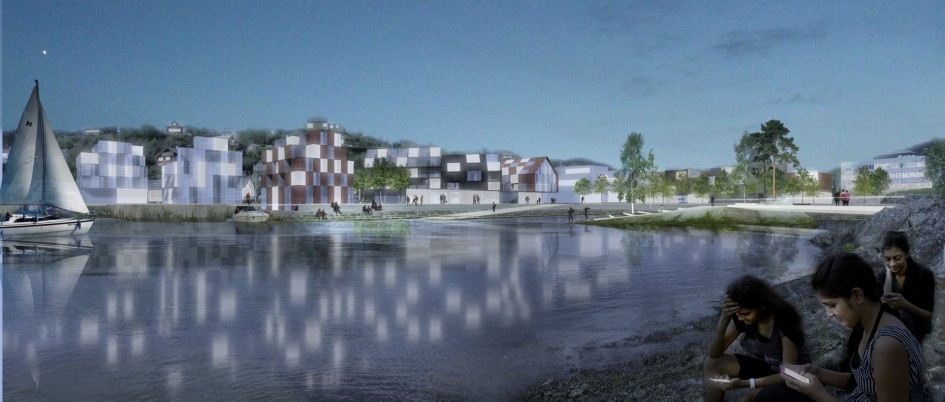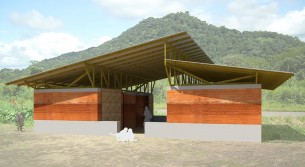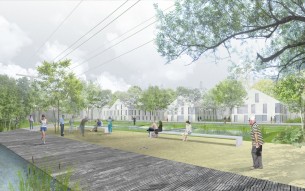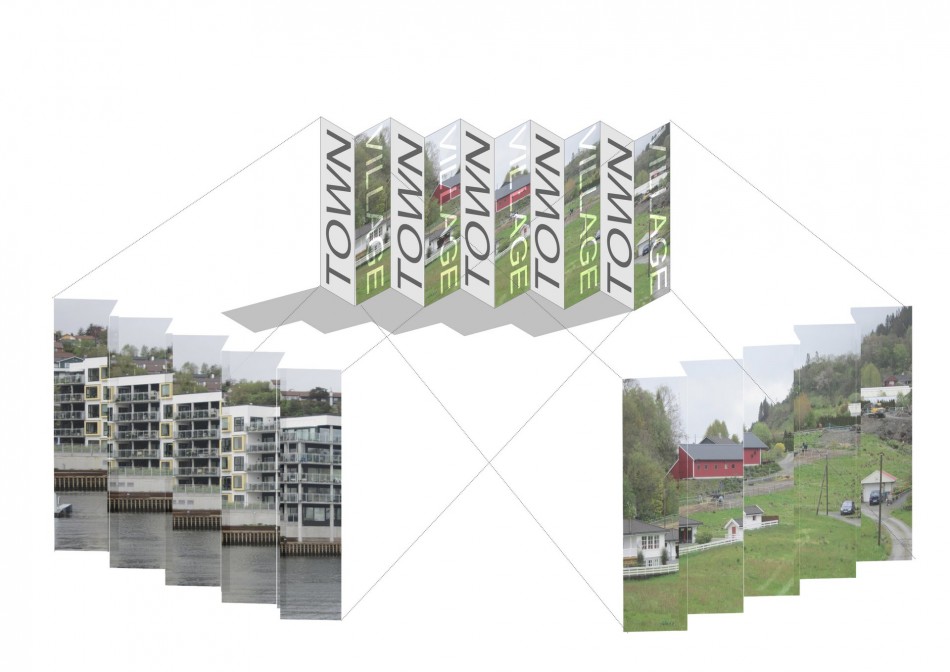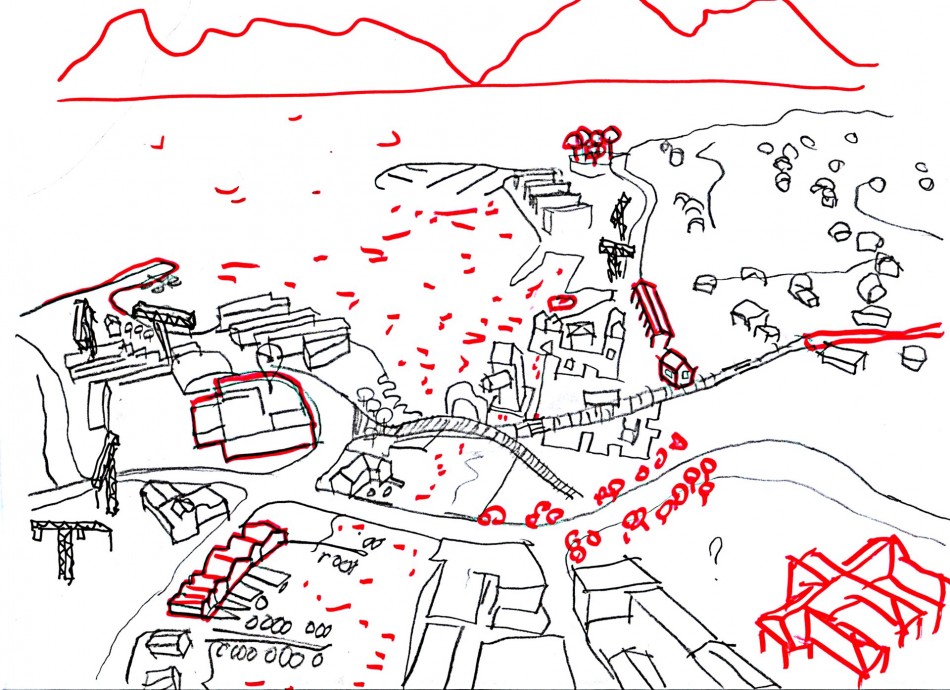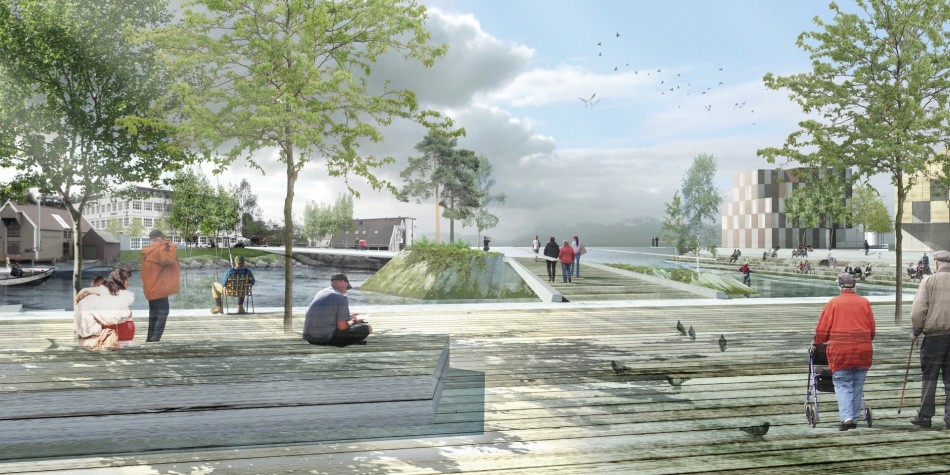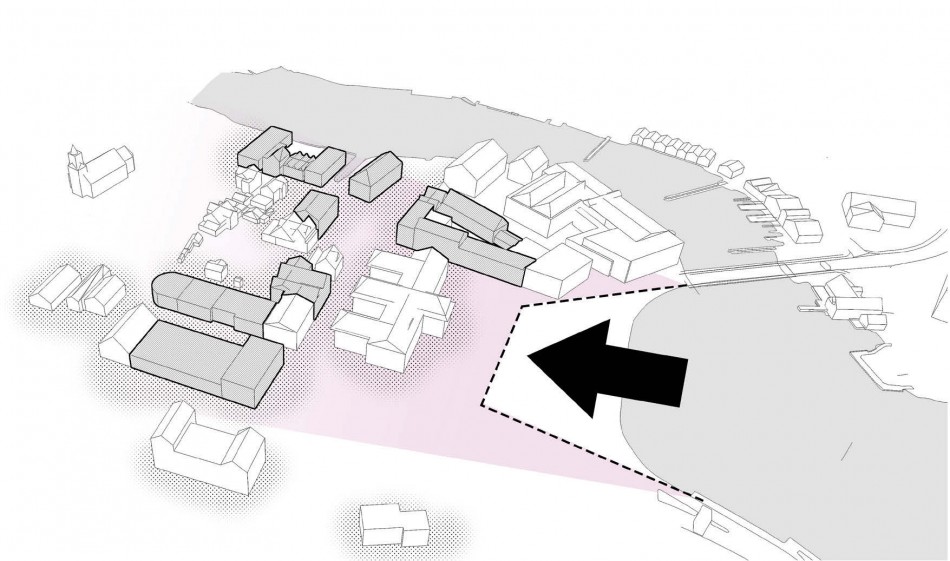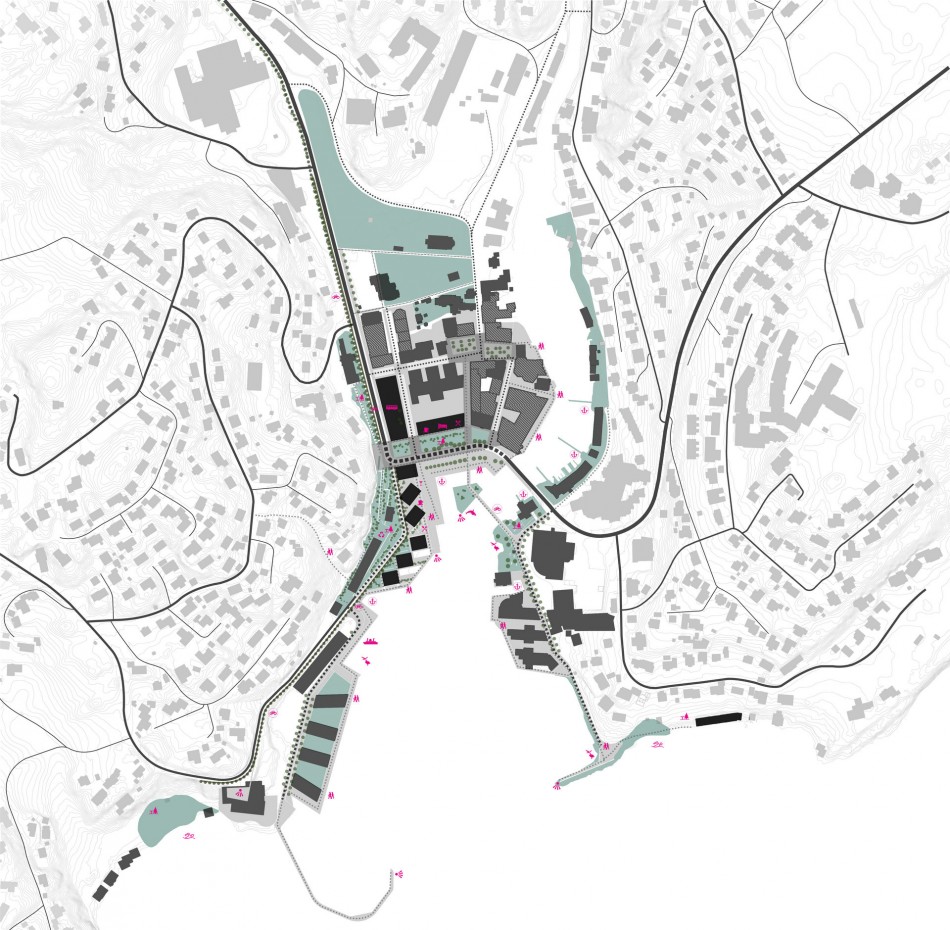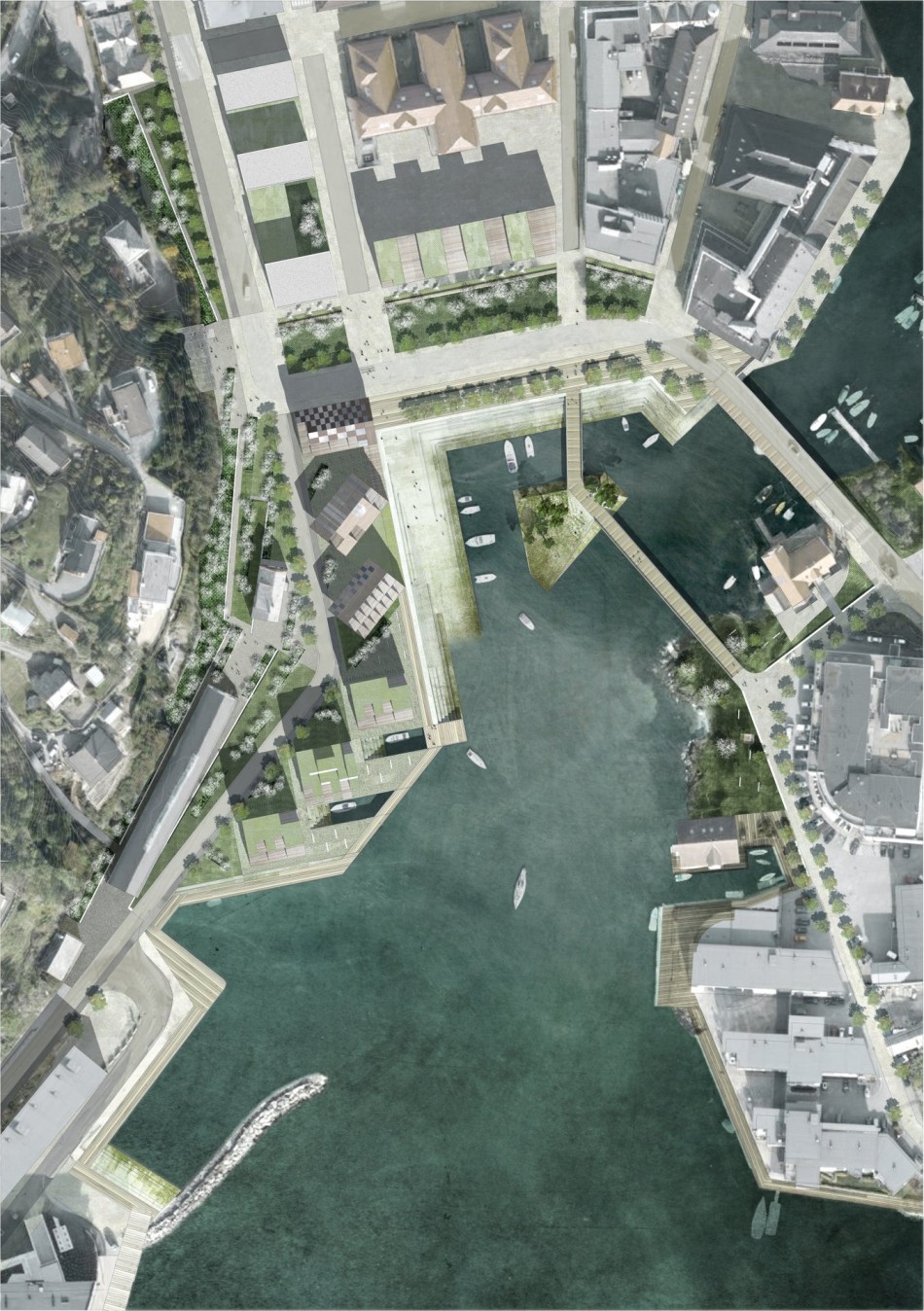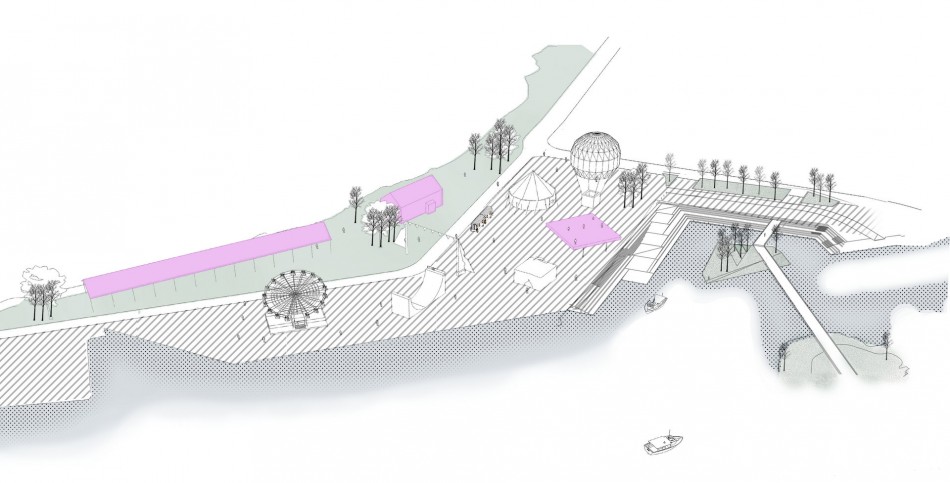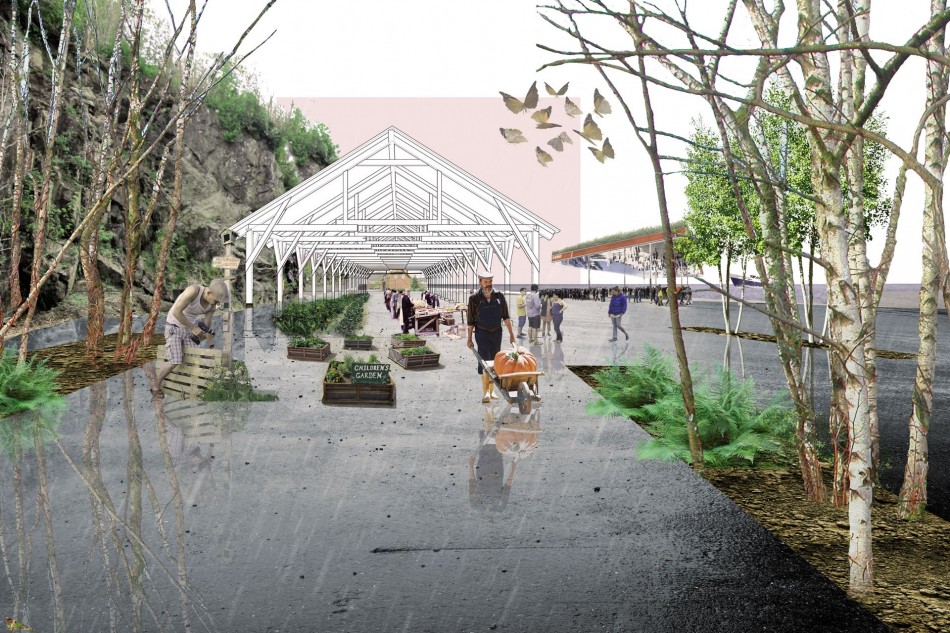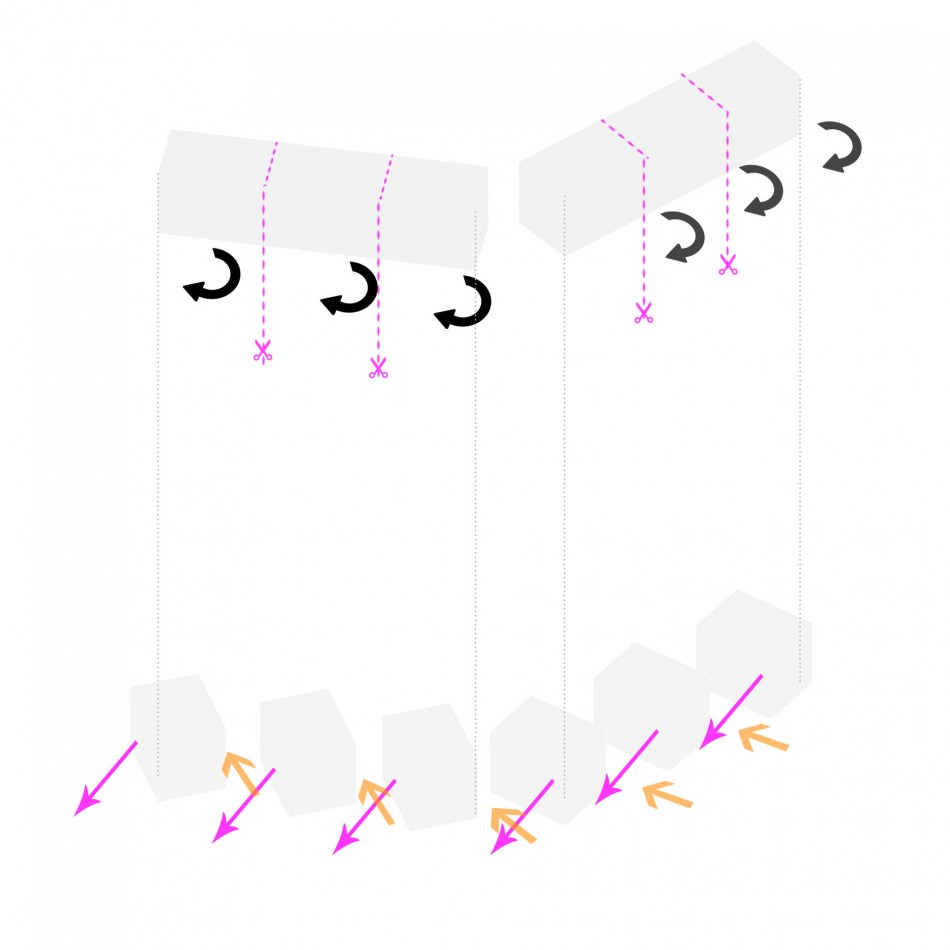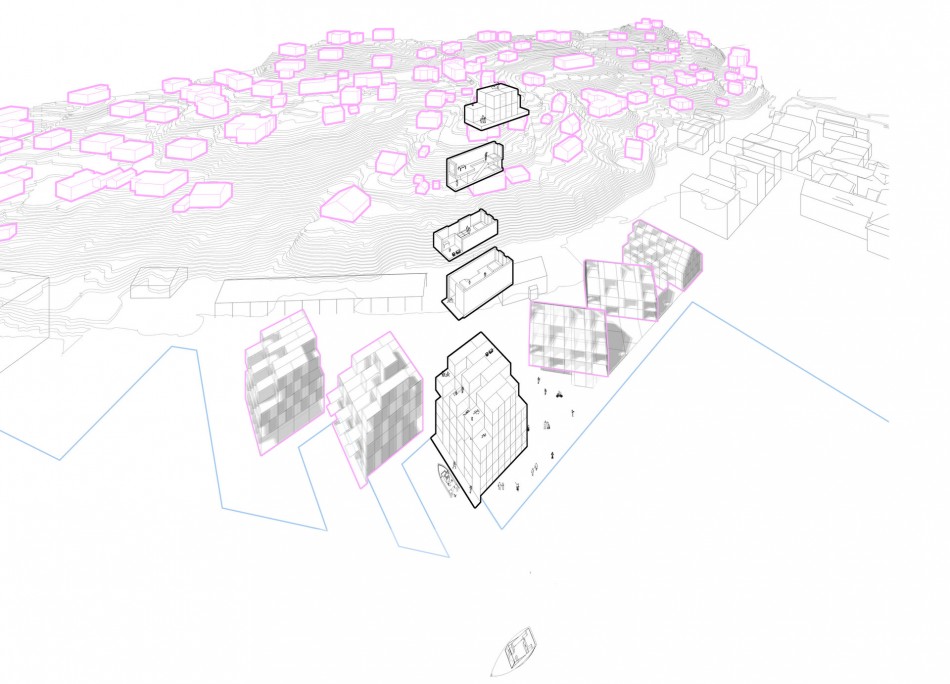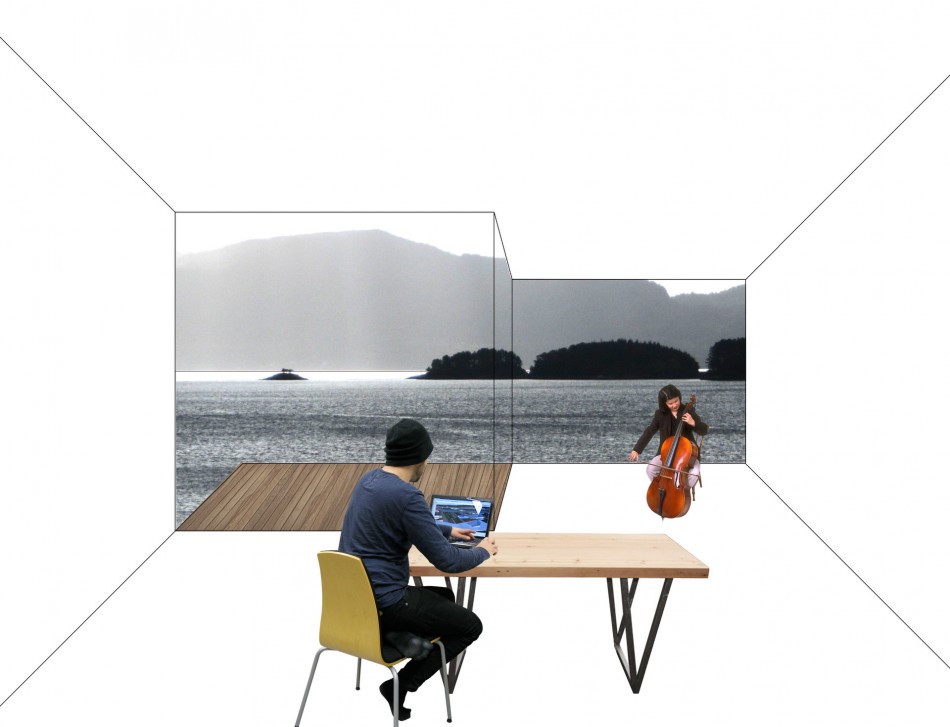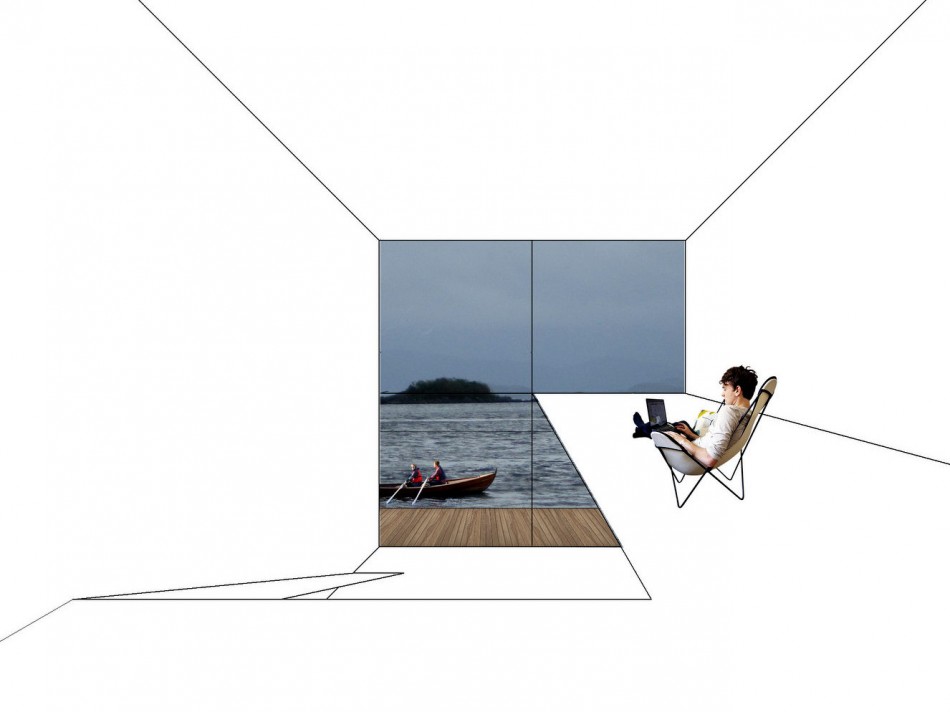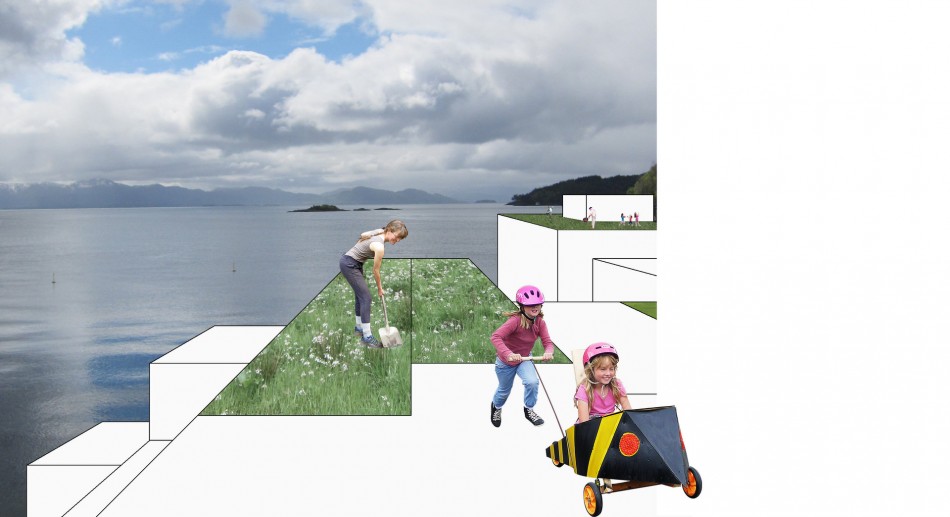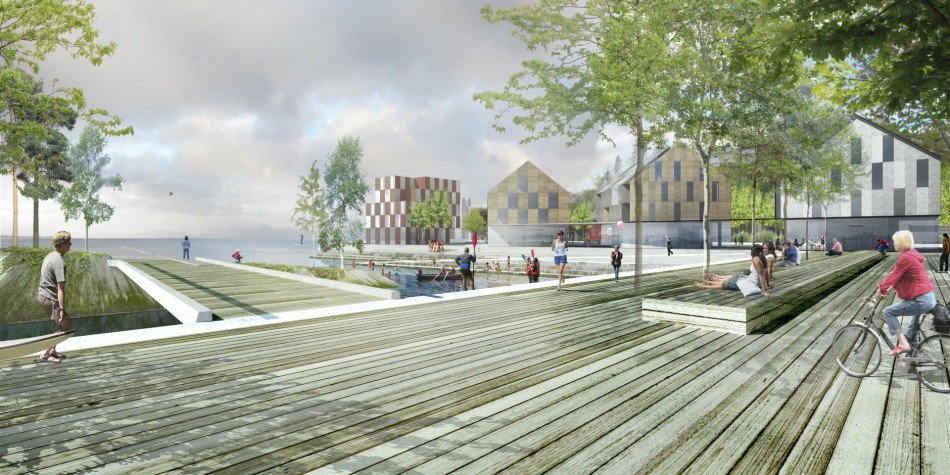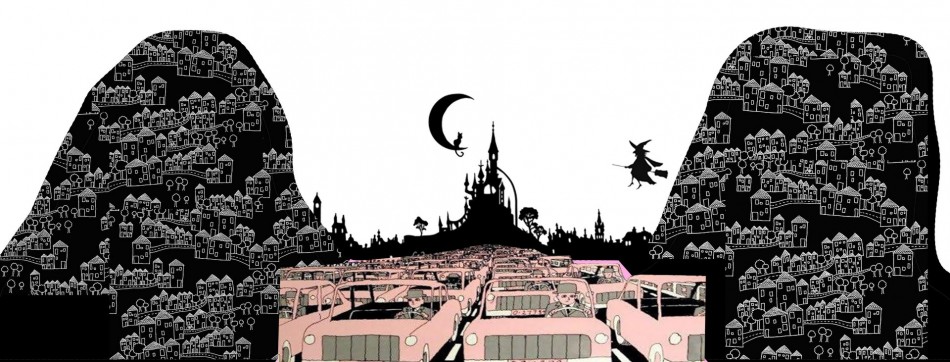Town center redevelopment of Osøyro, Norway. Europan 13 competition. With Maria Victoria Cresta and Nil Lachkareff, landscape architect.
A URBAN SETTLEMENT
Focusing on Osøyro’s true identity
The place has grown into an urban village. The center is dedicated to cars and the citizens from the Os Municipality meet at the shopping mall. People from and around Bergen are attracted by Osøyro’s convenient facilities, lower prices and short city escapes. But Osøyro has more. Positioned in gorgeous nature, it is a fishing paradise, a haven for boats and a sports heaven. It is a gem not easily noticed and is now under threat of losing its identity due to the sprawl of single family houses. Recognizing this treat of urban sprawl, Osøyro has chosen to densify. This emerged conflicting points of views among its residents – some favoring the small scale of private gardens, while others believe large scale developments are in need.
What is in agreement is that the community has a lot to gain by cultivating its main characteristics: awesome views, which are even more enjoyable when shared, with locals or visitors.
Town center Reanimation
Rediscovering the shoreline and the view will make underdeveloped buildings and shops of the center more attractive and therefore more likely to be updated.
Historical, geographical and urban dynamics
Getting closer to the original shoreline of Osøyro’s foundation is giving back its sill character to the town’s historical center. The past 50 years of suburban sprawl have been creating a strong dependence to cars and a privatization of the landscape. The focal readjustment on the town’s main space of exchanges is encouraging the redevelopment of the fading out center.
Inhabiting nature
The center is becoming the starting point for leisure activities like jogging, biking, kayaking, fishing, hiking, bathing or simply view contemplation.
A SPACE OF TRANSITION
The Sill
A RURAL TOWN
Initial activation
A urban event is celebrating the opening of the transitional space. It is is the start of a chain reaction leading to the housing developments, but also the center’s reanimation.
The old station : a space to share
The actual parking facilities around the historical station is becoming a public space with adaptive uses : collaborative gardening, events for kids, fish and vegetable market, when idle
a park with a roof. The station building is remaining as today a workshop space for kids. The Esso roof is temporarily covered with mirrors as a urban happening.
Diversity in unity
From the town center the extension is perceived as uniform and clear, easily identifiable. Facing the horizon the scale is getting more individual. It is a multiple scale implementation.
Flexibility in floor plan layouts is encouraging future inhabitants to be involved in the planning of their housing units. They are able to express specific needs and might discover shared interest with neighbors.
The apartments share features found in single family housing, benefiting the view while preserving intimacy. With additional advantages, like shared rooftops or gardens, direct access to a boat pier, all that cheaper and above all at walking distance from all conveniences.
View as pdf booklet and panels. Not selected. Awarded entries.
Self-critic
The proposal might have been dismissed as too romantic. It is indeed really classic and focuses on the surrounding natural beauty. But why ignore what makes the place strong ?
Instead hyper-urban add-ons have convinced the jury most. The winning project by KnitKnot suggests highly elaborated housing typologies, really well designed. It also features a new cultural center despite the 20 000 inhabitants town already having one : the active and well dimensioned Oseana. Furthermore a urban pool floats on the river, in addition to the 2 gorgeous beaches at walking distance. Finally movies are projected over the river in an open-air cinema. It might be nice to watch Singin’ in the rain in augmented reality (the area is considered the most rainy region in the world, weather can change in seconds). These extras are really metropolitan and are welcome in Brooklyn or Copenhagen. But has everybody overseen that the rural aspect of Osøyro is key for most locals and visitors ?

